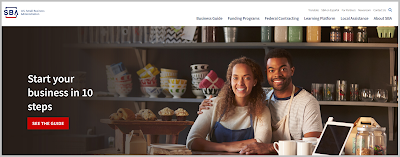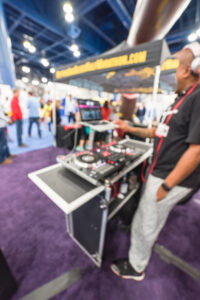Are you an experienced musician and educator looking to start your own private music studio? Starting a music studio can be a rewarding venture, but it can also be challenging. In this blog post, we will provide tips and resources to help you get started on the right foot.
1. Develop a Business Plan
A business plan is essential for any new business venture, including a music studio. A business plan will help you define your goals, target market, and financial projections. It is important to create a business plan, as it is a roadmap that will guide you throughout the entire process. A business plan will also help you stay organized and focused.
Here are some key components to include in your business plan:
- Mission statement: A clear and concise statement that defines the purpose of your music studio. It should include what services you offer, who your target market is, and what sets you apart from other music studios.
- Market analysis: A thorough analysis of the music education industry. This should include information about your competition, target market, and potential customers.
- Services offered: A detailed description of the services you offer. This can include private lessons, group lessons, music theory classes, and more.
- Pricing structure: A clear and concise pricing structure that includes your rates for all of your services.
- Marketing strategy: A detailed plan on how you plan to market your music studio. This can include social media advertising, flyers, and more.
- Financial projections: A financial forecast that includes your startup costs, expected revenue, and projected profits.
There are many resources available online to help you create a business plan, including the Small Business Administration‘s website.
2. Create a Professional Space
Creating a professional space for your music studio is crucial for success. You want your students to feel comfortable and inspired in your studio. Here are some tips for creating a professional space:
- Choose a location that is easily accessible and has ample parking: The location of your music studio is important. It should be easily accessible for your students, and it should have ample parking.
- Invest in quality equipment and instruments: Investing in high-quality equipment and instruments is important. Your students will be more engaged and motivated to learn if they are using quality equipment.
- Decorate your space with inspiring music-related decor: Decorating your space with music-related decor can help inspire your students. This can include posters, musical instruments, and more.
- Keep your space clean and organized: Keeping your space clean and organized is important. This will help create a welcoming and professional environment for your students.
3. Build Your Clientele
Building a clientele is an ongoing process, but there are steps you can take to get started. Here are some tips for building your clientele:
- Offer a free trial lesson to new students: Offering a free trial lesson to new students is a great way to get them interested in your music studio. This will give them a chance to see what you have to offer and how you can help them achieve their musical goals.
- Ask for referrals from satisfied students: Asking for referrals from satisfied students is a great way to build your clientele. Your current students can help spread the word about your music studio.
- Advertise your services online and in local newspapers: Advertising your services online and in local newspapers is a great way to get the word out about your music studio. You can also consider creating a website or social media page for your music studio.
- Attend local music events and network with other musicians and educators: Attending local music events is a great way to network with other musicians and educators. This can help you build your clientele and also help you form partnerships with other musicians and educators.
4. Utilize Online Resources
There are many online resources available to help you run your music studio. Here are some resources to consider:
- Duet (Music Teacher’s Helper): A software program designed specifically for music teachers to manage their studio. It can help you manage your schedule, billing, and more.
- Teachable: An online course platform that allows you to create and sell online music courses. This can be a great way to supplement your income and offer your services to a wider audience.
- Canva: A graphic design tool that allows you to create marketing materials for your music studio. This can include flyers, social media graphics, and more.
Starting a private music studio can be a challenging venture, but with the right tools and resources, you can be successful. Good luck!
Resources Cited
Small Business Administration. (n.d.). Create a business plan. https://www.sba.gov/business-guide/plan-your-business/write-your-business-plan
Music Teacher’s Helper. (n.d.). https://www.musicteachershelper.com/
Teachable. (n.d.). https://teachable.com/
Canva. (n.d.). https://www.canva.com/





